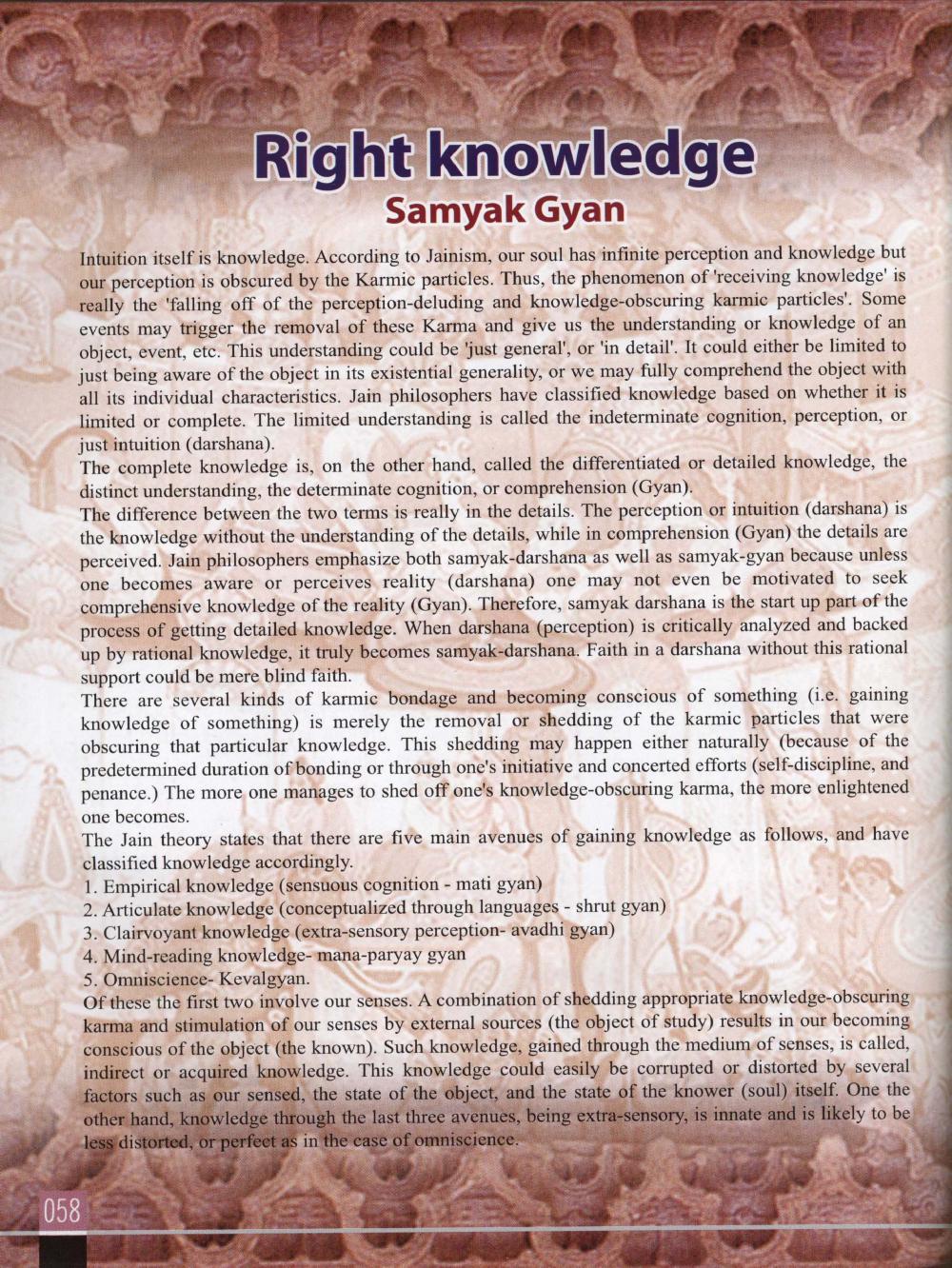________________
Right knowledge
Samyak Gyan
Intuition itself is knowledge. According to Jainism, our soul has infinite perception and knowledge but our perception is obscured by the Karmic particles. Thus, the phenomenon of receiving knowledge' is really the 'falling off of the perception-deluding and knowledge-obscuring karmic particles'. Some events may trigger the removal of these Karma and give us the understanding or knowledge of an object, event, etc. This understanding could be 'just general', or 'in detail'. It could either be limited to just being aware of the object in its existential generality, or we may fully comprehend the object with all its individual characteristics. Jain philosophers have classified knowledge based on whether it is limited or complete. The limited understanding is called the indeterminate cognition, perception, or just intuition (darshana). The complete knowledge is, on the other hand, called the differentiated or detailed knowledge, the distinct understanding, the determinate cognition, or comprehension (Gyan). The difference between the two terms is really in the details. The perception or intuition (darshana) is the knowledge without the understanding of the details, while in comprehension (Gyan) the details are perceived. Jain philosophers emphasize both samyak-darshana as well as samyak-gyan because unless one becomes aware or perceives reality (darshana) one may not even be motivated to seek comprehensive knowledge of the reality (
Gyan). Therefore, samyak darshana is the start up part of the process of getting detailed knowledge. When darshana (perception) is critically analyzed and backed up by rational knowledge, it truly becomes samyak-darshana. Faith in a darshana without this rational support could be mere blind faith. There are several kinds of karmic bondage and becoming conscious of something (i.e. gaining knowledge of something) is merely the removal or shedding of the karmic particles that were obscuring that particular knowledge. This shedding may happen either naturally because of the predetermined duration of bonding or through one's initiative and concerted efforts (self-discipline, and penance.) The more one manages to shed off one's knowledge-obscuring karma, the more enlightened one becomes. The Jain theory states that there are five main avenues of gaining knowledge as follows, and have classified knowledge accordingly. 1. Empirical knowledge (sensuous cognition - mati gyan) 2. Articulate knowledge (conceptualized through languages - shrut gyan) 3. Clairvoyant knowledge (extra-sensory perception- avadhi gyan) 4. Mind-reading knowledge-mana-paryay gyan 5. Omniscience-Kevalgyan. Of these the first two involve our senses. A combination of shedding appropriate knowledge-obscuring karma and stimulation of our senses by external sources (the object of study) results in our becoming conscious of the object (the known). Such knowledge, gained through the medium of senses, is called, indirect or acquired knowledge. This knowledge could easily be corrupted or distorted by several factors such as our sensed, the state of the object, and the state of the knower (soul) itself. One the other hand, knowledge through the last three avenues, being extra-sensory, is innate and is likely to be less distorted, or perfect as in the case of omniscience.
058




